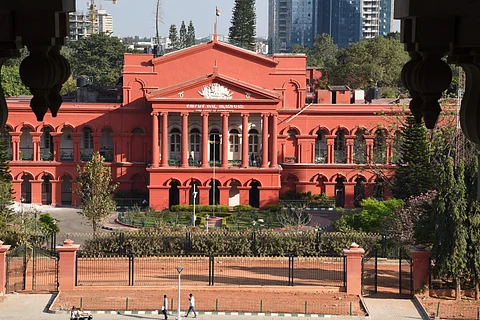

Today, March 10, the Karnataka High Court quashed the Education Department's circulars which proposed board-level assessment for Classes V and VIII. The exam idea was introduced for government school students.
Under the circulars, the question papers were set to be designed by the Karnataka School Examinations and Assessment Board. However, they were challenged by the Organisation for Unaided Recognised Schools and the Registered Unaided Private Schools' Management Association, as per a report by PTI.
A single-judge bench of Justice Pradeep Singh Yerur set aside the circulars dated December 12, 2022, December 13, 2022, and January 4, 2023, issued by the Commissioner of Public Instructions and the Department of State Education. He said that the circulars were contrary to the intentions of the Right to Education (RTE) Act, under which they were issued.
"Such circulars issued can only supplement the Act or rules but under no circumstances can supplant the rules. In situations when such circulars are issued to supplant the rules, which is in the guise of rules, the prescribed procedures and process have to be followed as contemplated under Section 38(4) of the Act," the High Court said.
The Additional Advocate General (AAG) who argued on behalf of the state contended that the government was not making any rule or notification and it was only formulating certain assessments and evaluations to aid and benefit students studying under the state syllabus. And therefore, he added, it was not liable to follow the RTE Act.
However, the bench said, "Such arguments are flawed. I am afraid that the said contentions of learned AAG cannot be accepted for the virtue of the reason of the impugned circular there is a change brought up by the State Government by way of evaluation and assessment."
"Awarding of 20 marks for the academic year 2022-23 which would invariably be assessed by the Board; KSEAB of the State. Thereby, an external agency is coming into play to award 20 marks to the students of 5th and 8th standards. This is not contemplated under Section 16 of the RTE Act," it added, as per PTI.
The final judgement by Justice Yerur reads, "Under the circumstances, I find force in the arguments put forth by the respective counsels for the petitioners as a new format for assessment and evaluation implemented by the State Government is contrary to Section 16 of the RTE Act and the procedure prescribed under the Act. Therefore the Writ Petitions are allowed."
"The High Court found that the State Government had not followed the procedure and placed the issue before the State Legislatures before issuing the circulars. The State Government had issued the impugned circular to prescribe certain assessments and evaluation procedures under the RTE Act," it added.
"The State Government is empowered to make rules and regulations and carry out provisions of the Act. In doing so, it has to necessarily follow the procedure under the Act. Section 38(4) of the Act states every rule or notification made under this Act shall be made after it is laid before the State Legislatures," it said further.
Nonetheless, the judgement also appreciates the intent of the government behind the circulars. "The intent of the State Government order is laudable and appreciable wherein it is attempting to have checks and balances on the mechanism for assessment and evaluation and also for remedial action," it said.
"At present where a large number of schools are mushrooming in every nook and corner of the streets at district and state level, it is necessary to bring about a mechanism with checks and balances and evaluation and assessment of school children from first to 9th standard and similar assessment of the schools and teaching staff. But how it was tried to be implemented was found to be inappropriate," the court said.
"However while bringing about the such mechanism, the appropriate state government or the schools for that matter have to necessarily follow the process and procedure laid down and prescribed under the statute. It is a cardinal principle of law that when any scheme circular is ordered it has to evolve or emanate under the statute under which it is contemplated," the judgement concluded, as per PTI.
